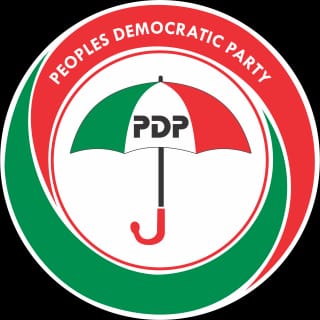By; HASSAN MAHMOOD IBRAHIM The recent decision by the National Executive Committee (NEC) of the Peoples Democratic Party (PDP) to zone its 202
By; HASSAN MAHMOOD IBRAHIM
The recent decision by the National Executive Committee (NEC) of the Peoples Democratic Party (PDP) to zone its 2027 presidential ticket to the South has triggered a storm of controversy within Nigeria’s political landscape. While the move was presented as a strategic calculation aimed at balancing regional interests, critics argue that it is both constitutionally defective and politically counterproductive.
Among the most vocal opponents of this decision is former presidential candidate Dr. Gbenga Olawepo-Hashim, whose recent appearance on Channels Television reinforced the growing discontent with the PDP leadership. His supporters, under the aegis of the Gbenga Hashim Solidarity Movement (GHSM), have equally declared their unshaken commitment to his presidential ambition, insisting that the zoning resolution cannot override the constitutional rights of Nigerians to aspire for any elective office.
In his interview on Channels TV’s Politics Today, Olawepo-Hashim described the PDP NEC’s action as a “big error” and a dangerous departure from the party’s democratic tradition. He argued that the zoning policy does not only disenfranchise legitimate aspirants but also risks transforming the PDP into a default campaign platform for President Bola Ahmed Tinubu’s re-election bid. According to him, those pushing for zoning are inadvertently strengthening the ruling All Progressives Congress (APC), rather than building a credible opposition.
The GHSM echoed this position in a strongly worded statement signed by its National Coordinator, Abdulrazaq Hamzat. The group maintained that the PDP NEC lacks the constitutional authority to impose regional restrictions on the presidency, citing Section 42(1) of the 1999 Constitution which prohibits discrimination on the basis of origin, ethnicity, or political opinion. They also referenced Section 7(2)(c) of the PDP Constitution, which obliges the party to align its internal processes with the national charter. By zoning the ticket, the NEC, in their view, has placed the PDP on a collision course with both the Nigerian Constitution and its own foundational principles.
Beyond the legal arguments, the GHSM drew attention to historical precedents. They reminded Nigerians that in 1999, even at the height of post-June 12 sentiments, the PDP allowed an open contest where aspirants from all regions freely participated.
Similarly, in 2003, President Obasanjo faced stiff internal competition despite being an incumbent. It was only in 2015, when the PDP abandoned this tradition and handed Goodluck Jonathan an automatic ticket, that the party paid the heavy political price of mass defections and eventual electoral defeat. The group insists that the 2027 zoning decision risks repeating this costly mistake.
Significantly, the GHSM vowed to continue mobilizing support for Dr. Olawepo-Hashim’s presidential ambition, describing him as the embodiment of unity, inclusivity, and visionary leadership. “No amount of unconstitutional zoning will deter our movement,” the statement declared, positioning him as a rallying point for Nigerians disenchanted with exclusionary politics. For the group, the solution to PDP’s existential crisis lies not in sectional bargains but in a transparent, competitive process that allows the best candidate to emerge.
The political implications are profound. By alienating credible aspirants like Olawepo-Hashim, the PDP risks deepening its internal divisions at a time when it can least afford disunity. Conversely, the GHSM’s steadfast advocacy underscores a broader sentiment among party members and Nigerians at large: that leadership in a diverse country must be anchored on competence and inclusivity, not rigid zoning formulas.
Whether the NEC reverses course before the November convention will determine if the PDP can reclaim its role as a true national party—or if it will slide further into irrelevance.
Hassan Mahmood Ibrahim, a public affairs analyst and journalist, writes from Kaduna, Nigeria.




COMMENTS